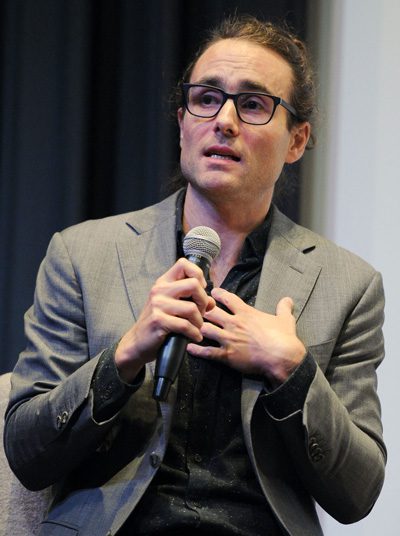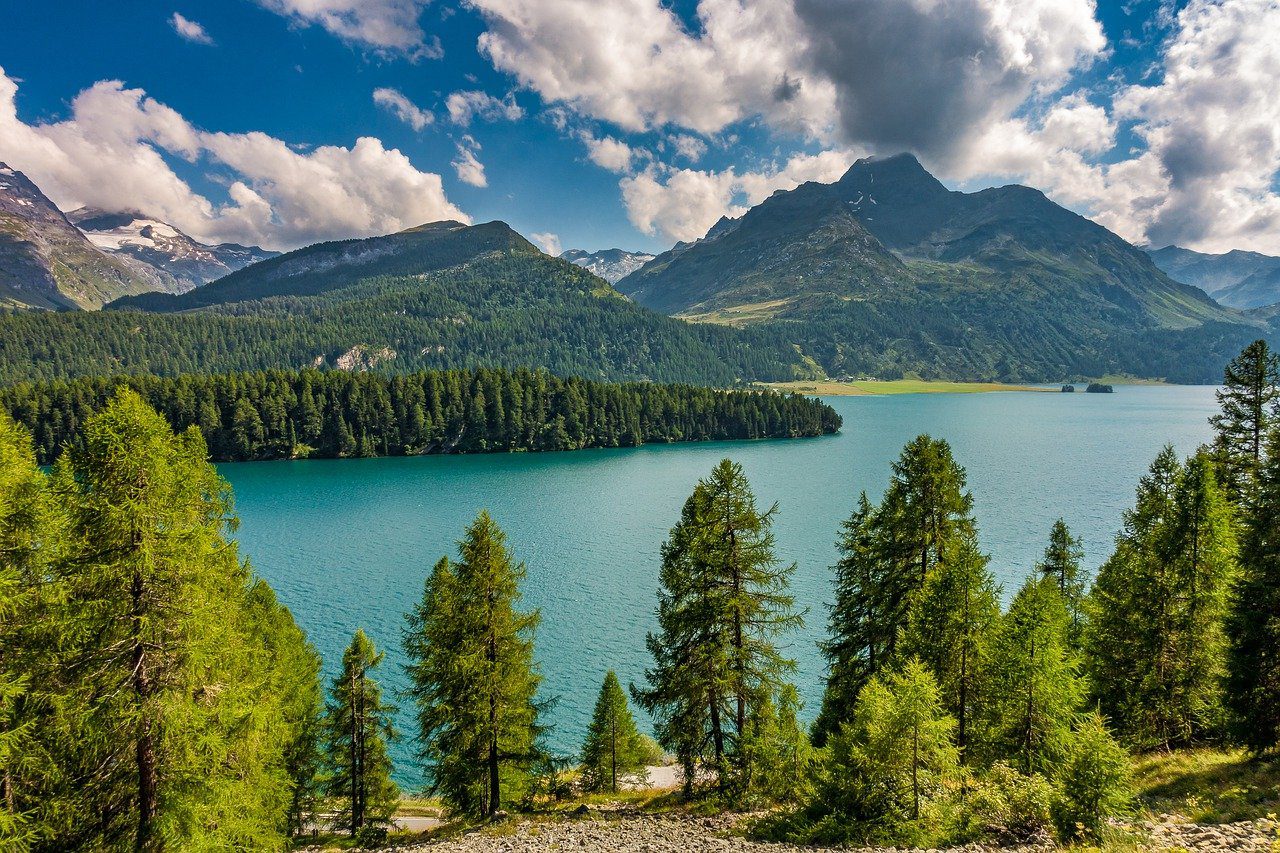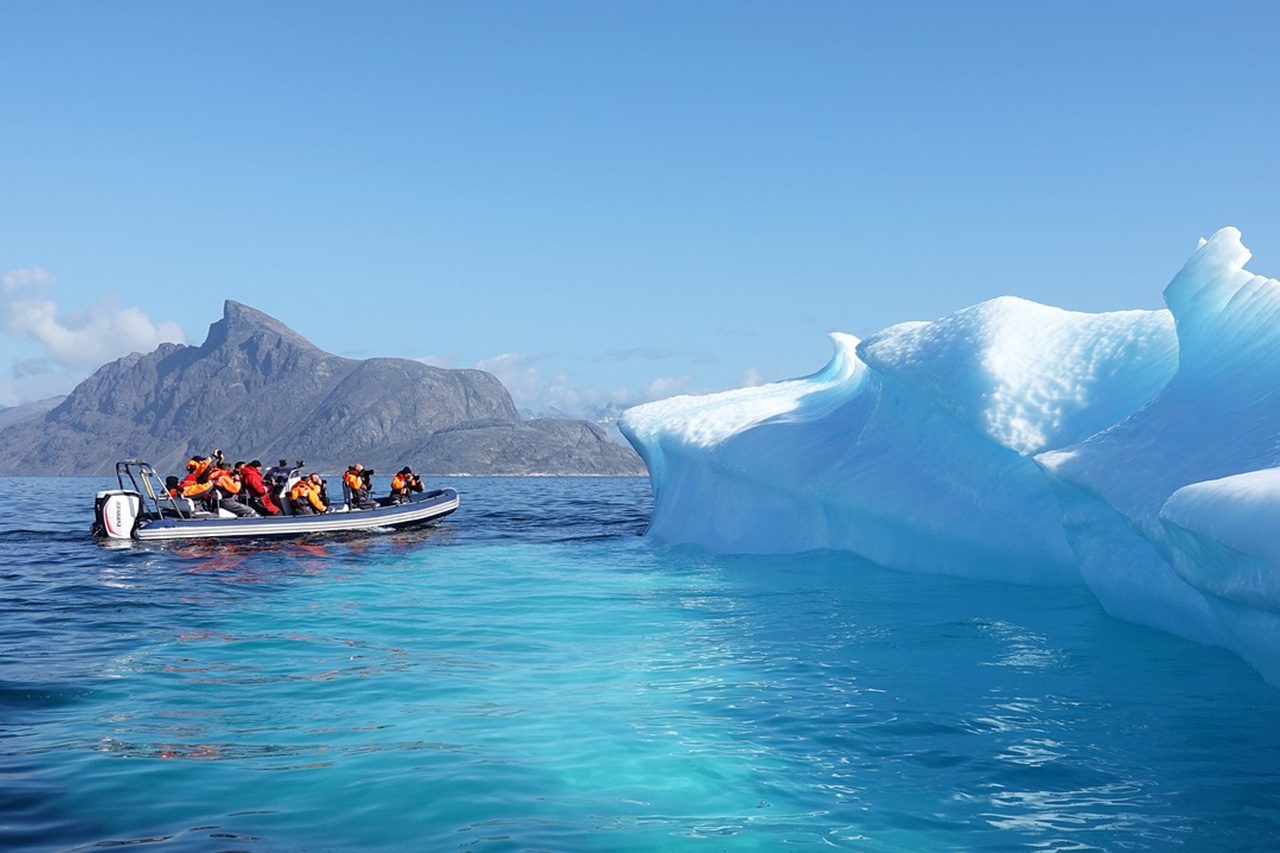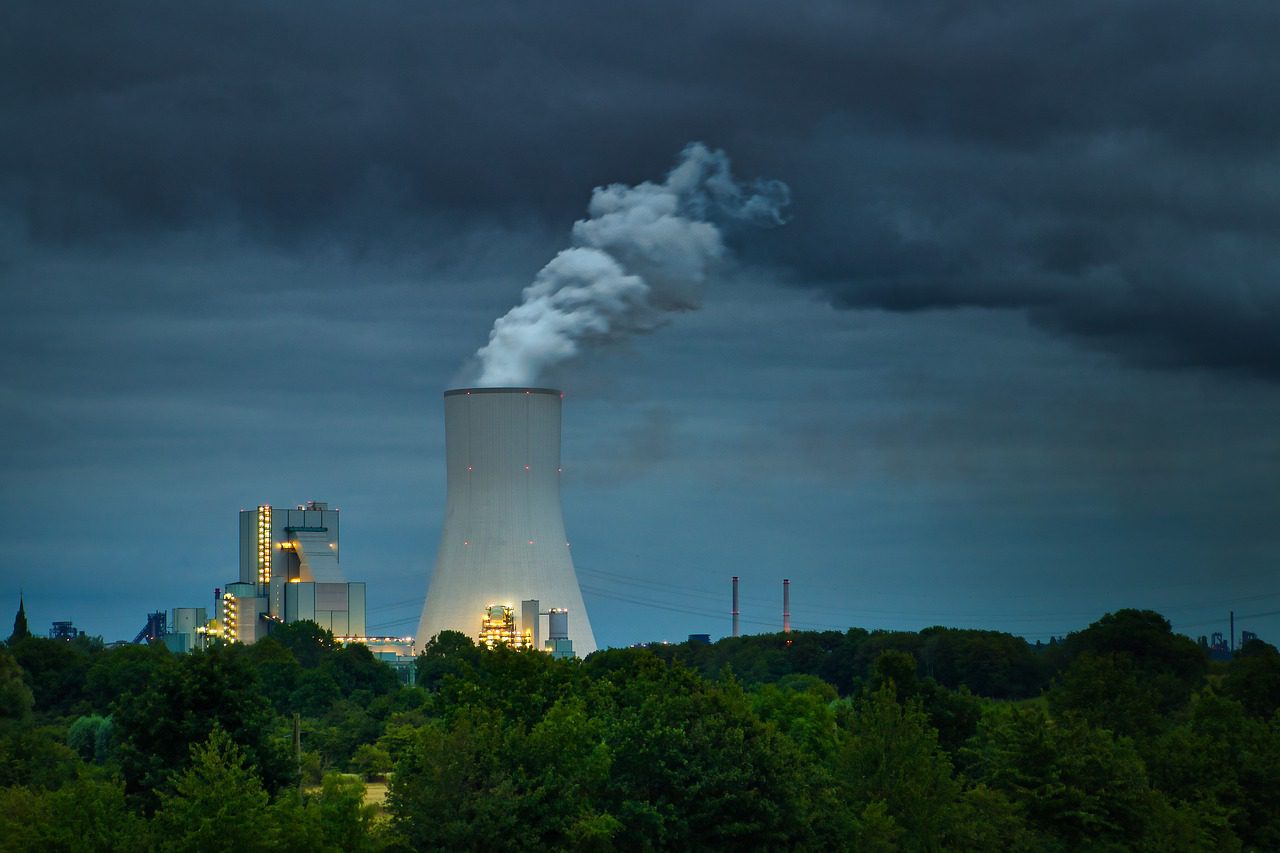Bestselling US reporter David Wallace-Wells says the planet’s future depends on WWII-like fear and alarm in the face of climate change.
To talk about climate change in terms of degrees of global warming (the Earth will be 4°C warmer by the end of the century, the United Nations says) apparently is too small a number to concern many of the public. On the other hand, talking about US$600 trillion in climate-change damage might be too large a number to be relatable.
But wildfire – its ferocity, its unpredictability, and the sense of vulnerability it creates – is something that every human, and probably every animal, innately understands.
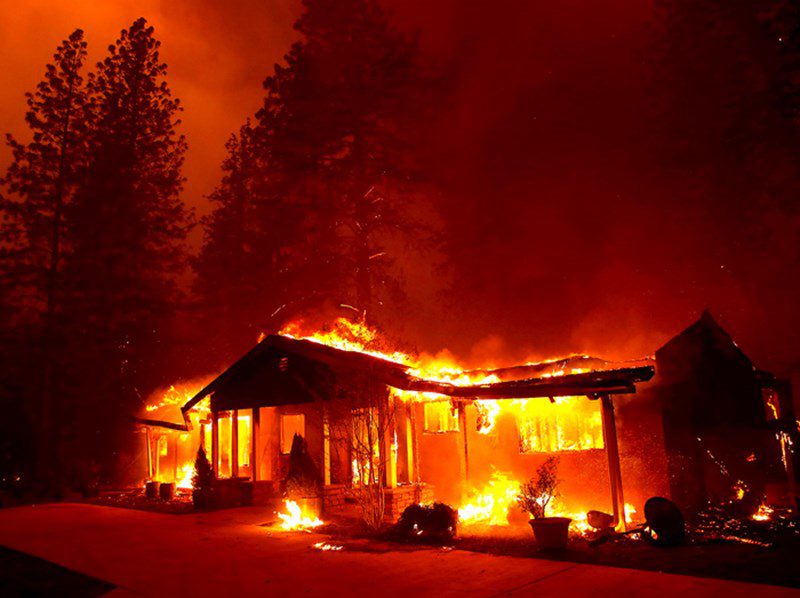
Wildfire in California. Photo/Getty Images
“Wildfire is not just horrible in the sense of a horror movie, but also feels immediate even if you don’t live somewhere that is vulnerable to it,” Wallace-Wells tells the Listener from his home in New York. “There is something about the way those stories unfold that makes you think your life, your community, your home could possibly be threatened. I think the intimacy and immediacy of that threat are really important to wake people up.”
Waking people up to the threat of climate change is Wallace-Wells’ cause. It never used to be. He has never considered himself an environmentalist. The 36-year-old is a journalist – deputy editor of New York magazine – and came to climate change initially by reading, then writing about the subject. The more he read, the more he understood, and the more he understood, the more alarmed he became. The more alarmed he became, the more he felt that if he was tipping from journalism’s prized impartiality into advocacy, then it was justified because the stakes were so high and the threat so immense.
David Wallace-Wells.Photo/Getty images
The full horrors
In 2017, he wrote a long magazine piece explicitly focused on worst-case scenarios should the Earth warm by 5°C, or even up to 8°C. With no action to cut greenhouse-gas emissions, 8°C of warming is the high end of the UN’s projections by the end of this century. Also, by then, many of the world’s major cities would be underwater as a result of sea-level rise, and tropical diseases would reach as far as the Arctic. At the equator and in the tropics, even to walk outside would be to risk death, so those regions would be added to the land area of the planet that is already uninhabitable. Fires and hurricanes would, meanwhile, continue to ravage forests and coasts.
There was an enormous response to Wallace-Wells’ story. There was a sense, he says, that many scientists had been trying to protect people from the full horrors of climate change, perhaps thinking that scaring people too much simply made them fatalistic when they needed to feel hopeful to be motivated to act.
Wallace-Wells is not afraid of fear and alarm when they arise from science. His just-released book, The Uninhabitable Earth, reads like a passionate call to arms
That military analogy would not be lost on him. The UN’s special climate report, published last October, said that to prevent catastrophic warming, a global mobilization not seen since World War II was necessary.
“It’s worth remembering,” Wallace-Wells says, “that on the point of hope and optimism versus fear and alarm, WWII was not a war that anyone fought out of hope. It was a war we fought out of fear and panic. We were terrified, and the reason we mobilized so quickly and so totally was that we were terrified. Climate change is a threat on that scale or bigger, and it’s foolish to dismiss fear and alarm as tools in our rhetorical toolkit for waking people up and engaging them on this issue.”
That is not to say that Wallace-Wells sees climate change as merely a public-relations exercise. Far from it. It is about the future of life on Earth and how that life might look compared with the life we live now.
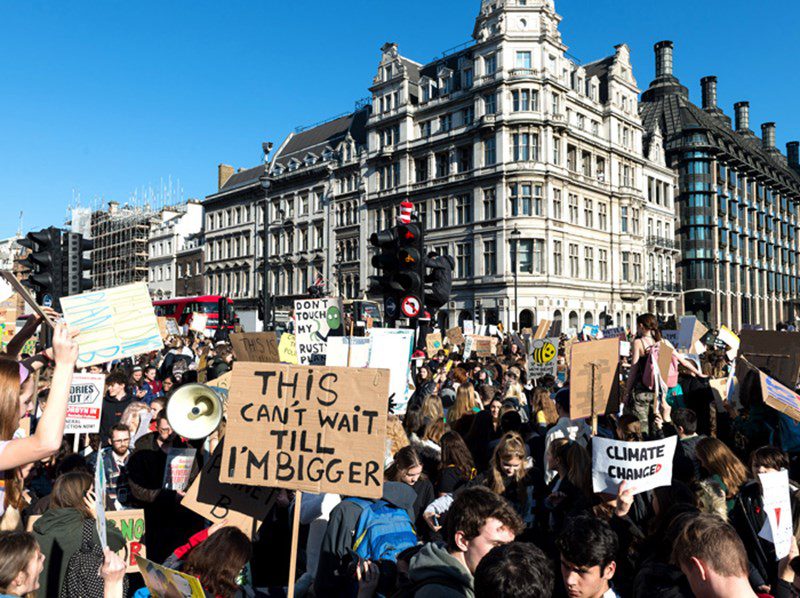
Hope for a generation: youth climate protests in the UK. Photo/Getty Images
The great untruths
In his book, he writes that it is tempting to look at the three “one in 500 years” hurricanes to flood Houston since 2015, the “thousand-year flood” that swept through Ellicott City, Maryland, in 2016, followed by another that was 50% larger two years later, or the regular wildfires in California, and think that this is “the new normal”.
“The truth is actually much scarier,” he writes in The Uninhabitable Earth.
“That is, the end of normal; never normal again. We have already exited the window of environmental conditions that allowed the human-animal to evolve in the first place. The climate system that raised us, and raised everything we know as human culture and civilization, is now, like a parent, dead. And the climate system we have been observing for the past several years, the one that has pummelled the planet, again and again, is not our bleak future in preview. It would be more precise to say that it is a product of our recent climate past, already passing behind us into a dustbin of environmental nostalgia.
“There is no longer any such thing as a ‘natural disaster’. Not only will things get worse, technically speaking, but they have also already gotten worse. Even if, miraculously, humans immediately ceased emitting carbon into the atmosphere, we’d still be due for some additional warming just from the stuff we’ve put into the air already. And, of course, global emissions are still increasing …
“The past few years of climate disasters may look like about as much as the planet can take. In fact, we are only entering our brave new world, one that collapses beneath our feet as soon as we set foot on it.”
If Wallace-Wells is guilty of rhetorical flourishes, there is plenty of science to back them up.
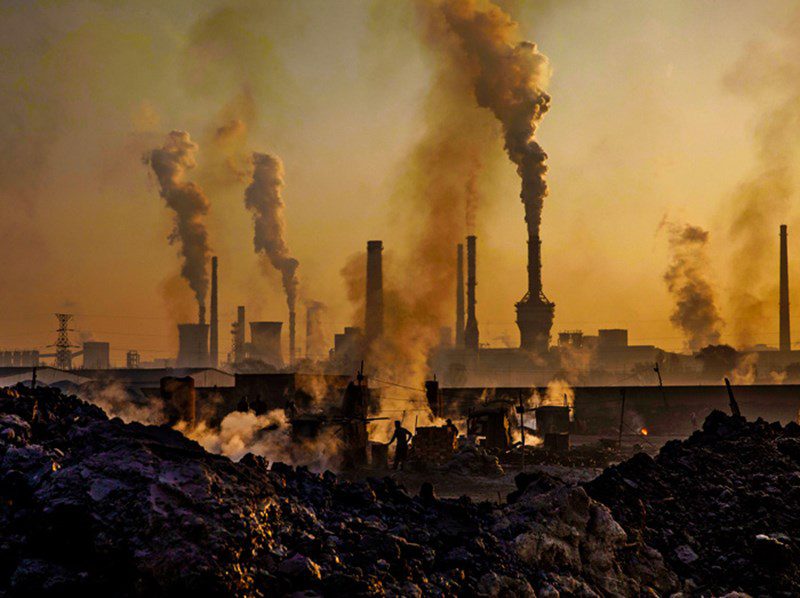
Smoke billows from an unauthorized Chinese steel plant in 2016. Photo/Getty Images
For too long, he says, public fears have been assuaged by three great untruths about climate change: first, that it will occur slowly; second, that it will mostly affect only people who live on the coast; and third, that it will not be too severe.
Wrong. Wrong. Wrong.
It is here and already unstoppable; every human life will be affected by it and some of the effects will be so large and overwhelming “they are almost impossible to believe”, he says.
As is commonly known, a warming planet leads to melting ice in the Arctic and Antarctic. The whiteness of ice causes the sun’s rays to reflect back into the sky in what is known as the albedo effect. When ice melts and becomes a dark ocean, it absorbs heat rather than reflects it, so the planet warms faster still.
“A warming planet will also melt Arctic permafrost, which contains 1.8 trillion tonnes of carbon, more than twice as much as is currently suspended in the Earth’s atmosphere, some of which, when it thaws and is released, may evaporate as methane, which is 34 times more powerful a greenhouse-gas warming blanket than carbon dioxide when judged on the timescale of a century. When judged on the timescale of two decades, it is 86 times more powerful.
“A hotter planet is, on net, bad for plant life, which results in what is called forest dieback – the decline and retreat of jungle basins as big as continents and woods that sprawl for so many miles they used to contain whole folklores – and a dramatic stripping back of the planet’s natural ability to absorb carbon and turn it into oxygen, which means still hotter temperatures and more dieback – and so on.
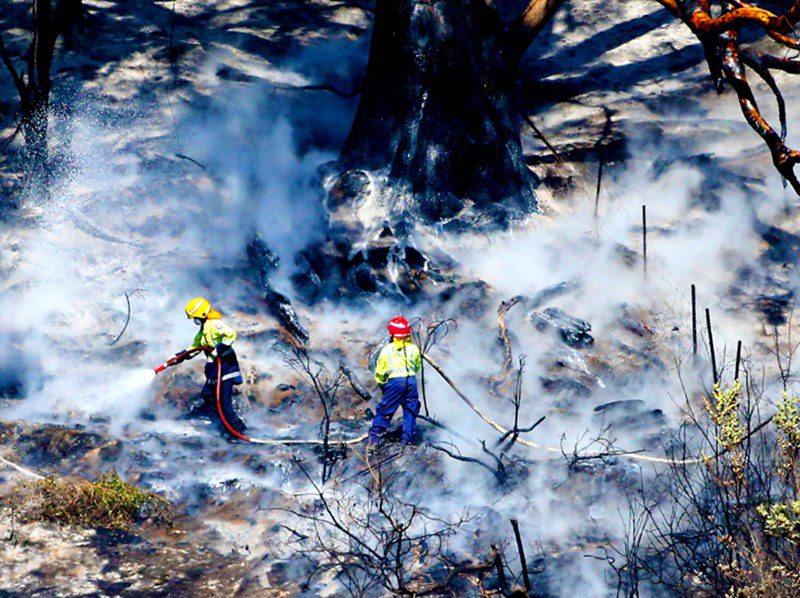
The aftermath of a wildfire near Nelson. Photo/Getty Images
“Higher temperatures mean more fires and fewer trees, which means less carbon absorption. More carbon in the atmosphere means a hotter planet still, and so on.
“A warmer planet means more vapor in the atmosphere, and water vapor, being a greenhouse gas, brings higher temperatures still – and so on. Warmer oceans can absorb less heat, which means more heat stays in the air, and they contain less oxygen, which is doom for phytoplankton – which does for the ocean what plants do on land: eat carbon and produce oxygen. This leaves us with more carbon, which heats the planet further, and so on. These are the systems that climate scientists call ‘feedbacks’, and there are more.
“Some feedbacks work in the other direction, moderating warming, although many more point towards an acceleration of warming, should we trigger them. And just how these complicated, countervailing systems will interact – what effects will be exaggerated and what undermined by feedbacks – is unknown, which pulls a dark cloud of uncertainty over any effort to plan ahead for the climate future.”
Through the climate-change catastrophe that is unfolding, the poorest countries will suffer the most, with the exception of Australia, which is the richest of those countries that are expected to bear the brunt of fiercer heatwaves, greater desertification, and longer droughts. One effect of that, Wallace-Wells thinks, will be migration to New Zealand. He hopes New Zealanders will be accommodating hosts when Australians join the millions of climate-change refugees who will be seeking new homes in our hot new world.
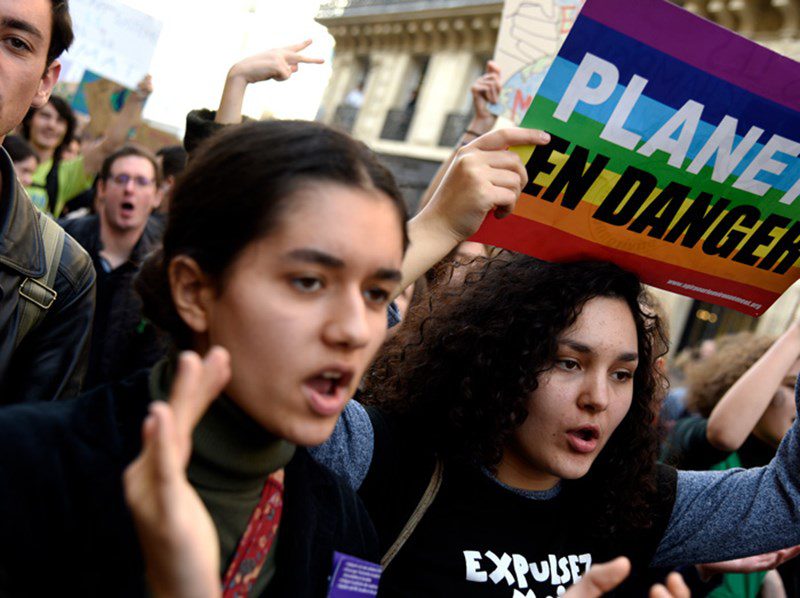
Youth climate protests in France earlier this year and in 2018. Photo/Getty Images
Push for policy change
All of us, Wallace-Wells argues in his book, are responsible for this unfolding disaster.
“All of us are, collectively, responsible, imposing some suffering on our future selves every time we flick a light switch, buy a plane ticket or fail to vote.” Now, he says, we all need to be responsible for the next act. “We found a way to engineer devastation, and we can find a way to engineer our way out of it – or, rather, engineer our way towards a degraded muddle, but one which nevertheless extends forwards the promise of new generations engineering their own way forward.”
Unplugging the entire industrial world from carbon is intimidating, but the avenues to do so are there. However, Wallace-Wells says we should stop thinking of the future as a continuation of our present lifestyles because it will be completely different.
Being saved by technology is nothing we should rely on. He agrees with the description of carbon capture and storage as, so far, nothing more than “magical thinking”. Although it is common to assume that technology will somehow save us, there is no sign that it can handle the scale of the problem. Further, carbon emissions, which leveled off marginally in 2015 and 2016, are again on the rise. Even before that rise, not a single major industrial nation was on track to fulfill the commitments made in the 2016 Paris Agreement, which aimed to keep global temperature rise this century below 2°C. A further aim to limit increases even more, to 1.5°C, – considered the best-case scenario given the number of greenhouse gases already in the atmosphere – meant nations needed to better their Paris commitments. China, which already has the world’s largest carbon footprint, grew its emissions by 3% in the first half of last year. Globally, coal-fired power has nearly doubled since 2000.
Failure is a common theme in the world of greenhouse gas emission targets. The 20 years that followed the 1997 Kyoto Protocol – a binding treaty committing nations to reduce their emissions – produced more carbon emissions than the 20 years that preceded it, Wallace-Wells writes.
Interestingly, or perhaps “worryingly”, Wallace-Wells thinks there is very little that individuals can do, other than apply political pressure for change.
The changes that are needed, he argues, are so vast, so significant and so urgent that Westerners deciding to go vegan, or to ride a bike instead of driving a car, are making such a marginal difference that, in his view, their energy would be better spent on pushing for policy changes.
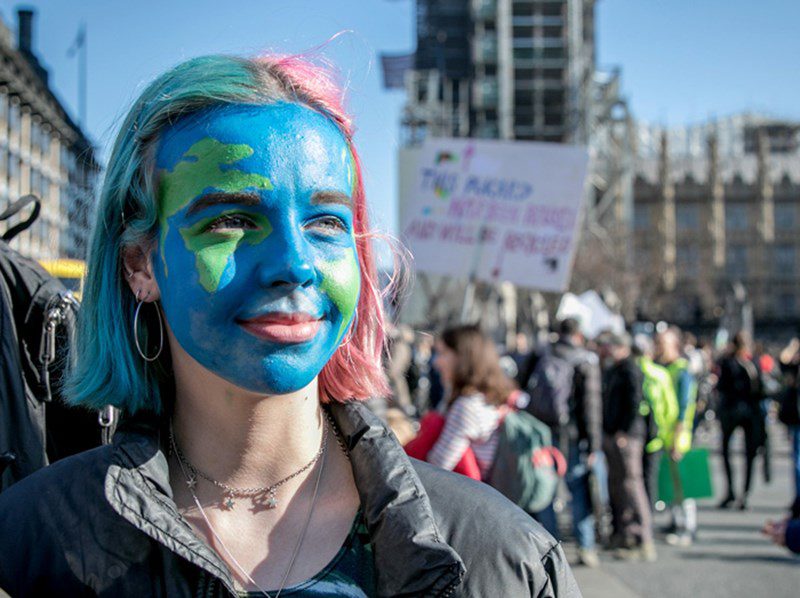
Photo/Getty Images
The idea that we make our mark on the world through individual choices is, to him, a diversion, he tells the Listener.
“When I look at my cohort, I worry that too many people like me spend their political capital on things that have only a marginal effect on this huge issue.
“The kinds of changes we are likely to need to avert dramatic warming and catastrophic levels of climate suffering are the changes that can be manufactured and engineered only at a policy level.
“If you add up all the meat consumption of all the liberals in the West, and add up all their emissions from their non-electric cars and the amount they are willing to forgo air travel, those choices will theoretically have some effect on the carbon footprint of their respective countries and in total would have some mark on the global carbon footprint, but we are talking about needing changes that are so much bigger than that.”
Wallace-Wells argues that responses at a national level are required to rebuild infrastructure, to make a massive investment in green energy and to find new ways of doing agriculture to make it considerably less carbon-intensive; to encourage new treaties among nations that factor in carbon emissions – perhaps similar to the way they are judged on human rights now – and to cope with the wars that will increase over resource use, not to mention the rise in crime, ill-health and mental problems that are already known to accompany warmer weather.
There are opportunities, including for New Zealanders, he says, in the development of green energy, such as solar, or carbon-capture ideas along the lines of our ambitious tree-planting program, and other non-carbon technologies.
“Climate change is not an ancient crime we are tasked with solving now; rather, we are destroying our planet every day, often with one hand as we conspire to restore it with the other. We can also stop destroying it, in the same style – collectively, haphazardly, in all the most quotidian ways in addition to the spectacular-seeming ones.
The project of unplugging the entire industrial world from fossil fuels is intimidating, and must be done in fairly short order – by 2040, many scientists say. But in the meantime, many avenues are open, were we not so lazy and so blinkered and so selfish to embark on them.”
This article by Joanne Black was previously published on Noted
About the Author:
Joanne Black is an award-winning journalist. She currently lives in Washington DC, where she is a speechwriter, a freelance journalist, and author of the New Zealand Listener‘s popular Back to Black column.
Featured Image Credits: Pixabay


